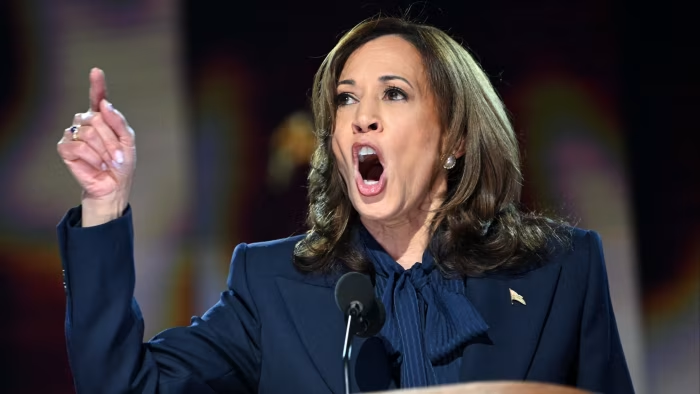The entire nation and world are swept up in the dramatic runup to the November 5, 2024 Presidential Election. We began receiving clear signals concerning Kamala Harris’s economic policies last week.[i] Of course, Donald Trump has his “2025 Project,” which presents its own distinct economic plan. For most Black Americans, there is no expectation that Trump would seek to support the “Black Cause” economically. Expectations are quite the contrary with Harris.
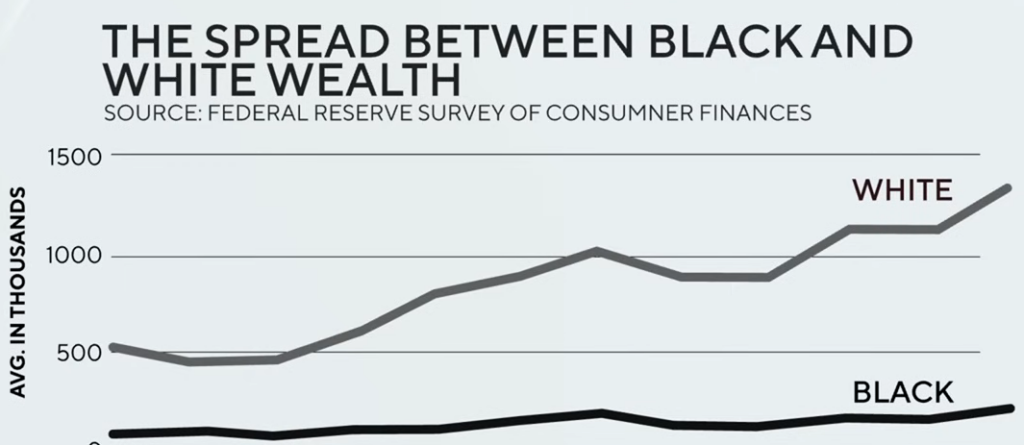
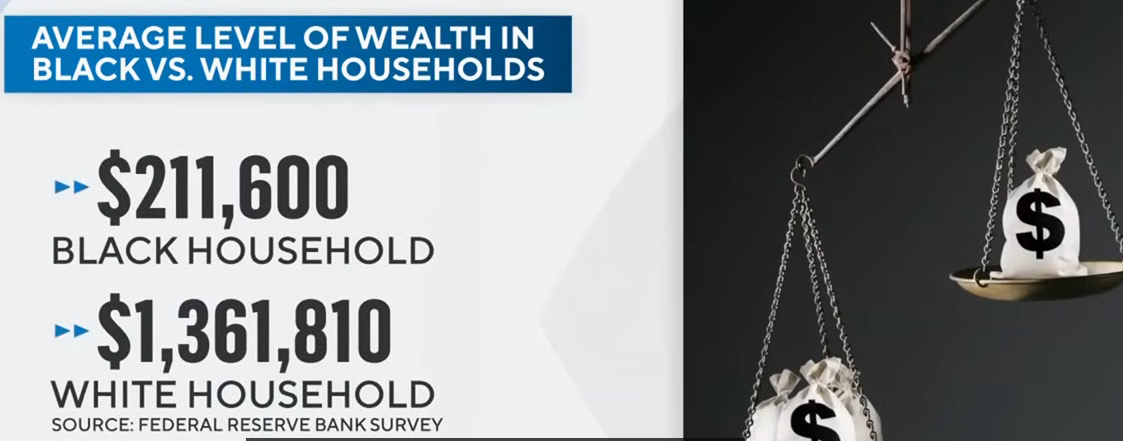
Hence, this analysis brief that interprets Harris’ first policy salvo on the economic front from a Black American economic perspective. As you consider the analysis, recall BlackEconomics.org’s admonition that Black Americans should use a “report card” when assessing the candidates.[ii] This analysis brief can serve as input for Black Americans’ report cards.
Table 1 presents in shorthand the major tenets of Harris’s proposed economic policies, brief analysis of them, and/or questions about these policies from a Black economic perspective.
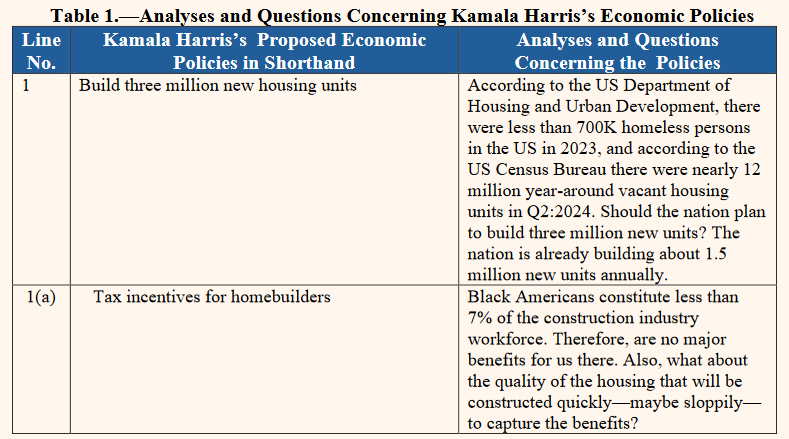
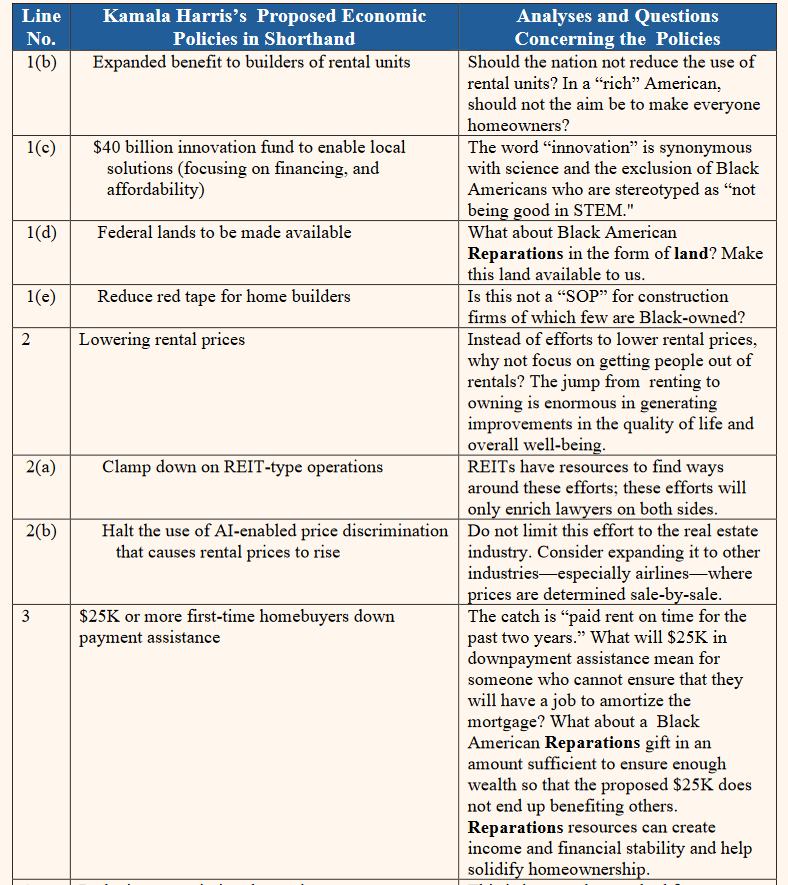

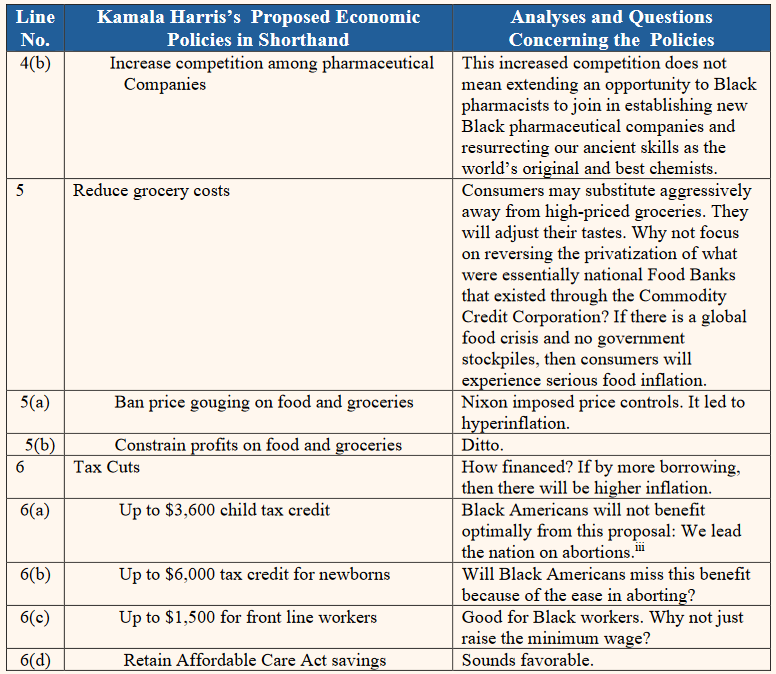
In our view, almost all these policy proposals are aimed at benefiting industry most, with benefits to voters being of secondary importance. Implementation of these proposals would serve as another wave of the US Government spending to prop up the economy, which will create the need for more borrowing and higher inflation followed by a new cycle of interest rate raising. Can this go on forever or will the house of cards implode, and Kamala Harris—a Black American—be saddled with the blame?
Unfortunately, these economic policy proposals smell of electioneering. What about the big issues, which if solved successfully, would be beneficial for all Americans: Reparations; the deficit and debt; Social Security’s long-term solvency; completing healthcare reforms that lead to excellent yet affordable healthcare all around; and addressing environmental concerns—including the need to reimagine nonlife insurance due to the increasing frequency and severity of catastrophes.
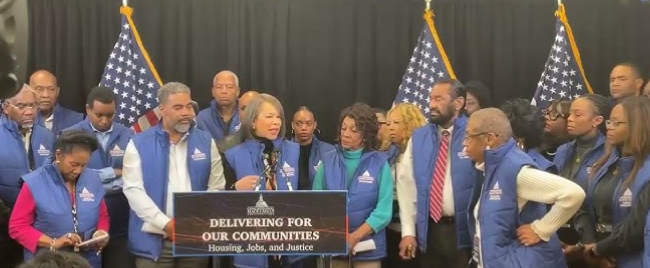
Black Americans have long been held in check by Democratic Party apron strings. Certain benefits are directed at us to secure our vote, but they always come with strings. Because oligarchs and plutocrats recognize our allegiance to the Democrats in this two-party system, they orchestrate the evolution of left- and right-leaning candidates who increasingly adopt widely divergent political postures, which force us to bind ourselves even closer to the Democrats. Do you agree that it is time to cut the strings and break the bind—unless something completely new and different is in the offing?
Some believe that the nation is at a crossroad. We believe that the turning point was missed, and only fiscal and economic cliffs lie ahead. If these economic policies are implemented, then maybe we should warn office towers on Wall Street to rush to block exits to their rooftops: Windows in those towers no longer facilitate an easy jump to elude the painful and crushing reality of “lost fortunes.”

Dr. Brooks Robinson is the founder of the Black Economics.org website.
References:
[i] New Jersey Insider (2024). “Vice President Harris Lays Out Agenda to Lower Costs for American Families.” https://www.insidernj.com/press-release/vice-president-harris-lays-out-agenda-to-lower-costs-for-american-families/ (Ret. 082024).
[ii] B Robinson (2024). “Voting from Black Political Report Cards.” A BlackEconomics.org Report Brief.
Honolulu: https://www.blackeconomics.org/BEFuture/vfbprc012624.pdf (Ret. 081924).
[iii] James Studnicki, John Fisher, and James Sherley (2020). “Perceiving and Addressing the Pervasive Racial Disparity in Abortion.” Health Services Research and Managerial Epidemiology. August 18.
https://www.ncbi.nlm.nih.gov/pmc/articles/PMC7436774/ (Ret. 082024).
